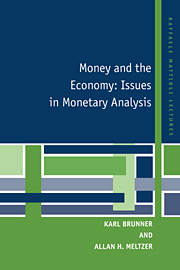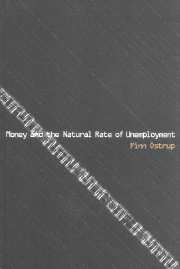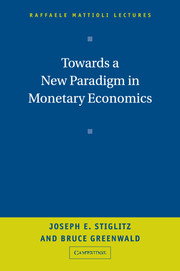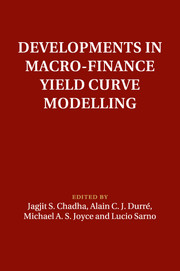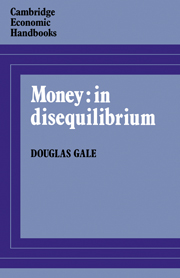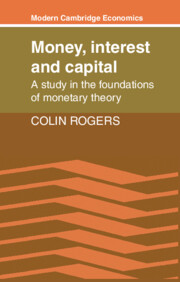
Money, Interest and Capital
A Study in the Foundations of Monetary Theory
Part of Modern Cambridge Economics Series
- Author: Colin Rogers
- Date Published: May 1989
- availability: Available
- format: Paperback
- isbn: 9780521359566
Paperback
Other available formats:
eBook
Looking for an inspection copy?
This title is not currently available for inspection. However, if you are interested in the title for your course we can consider offering an inspection copy. To register your interest please contact [email protected] providing details of the course you are teaching.
-
This book presents a study in the foundations of monetary theory with several unique features. It consists of two parts: a critique of the varieties of neoclassical monetary theory, and a rigorous statement of the foundations of Post Keynesian monetary theory. The two parts reflect Joseph Schumpeter's distinction between monetary theories in the divergent traditions of Real and Monetary Analysis. Part I offers a novel critique of Wicksellian and neo-Walrasian general equilibrium versions of Real analysis. The critique of Wicksell's monetary theory demonstrates the general impossibility of defining the natural rate of interest without which the loanable funds theory collapses. The critique of neo-Walrasian monetary theory, on the other hand, exploits the inessential role of 'money' in temporary equilibrium and overlapping generations models and develops a novel interpretation of the Patinkin controversy and the Clower finance constraint. The implications of these developments are then traced through the debates between monetarists and Keynesians. Part II presents a rigorous argument for securing the foundations of Post Keynesian monetary theory in the tradition of Monetary Analysis. In the context of the evolution of the monetary system from commodity money to credit money. Wicksell's natural rate of interest is replaced by Keynes's marginal efficiency of capital which is in turn applied to Myrdal's notion of monetary equilibrium to derive a formal definition of Keynes's point of effective demand. This leads to the most novel feature of the book: the demonstration of the existence of a long-run unemployment equilibrium without the assumptions of rigid wages. The principle of effective demand is shown to break Say's Law by placing a limit on the profitable expansion of output before full employment is reached.
Customer reviews
Not yet reviewed
Be the first to review
Review was not posted due to profanity
×Product details
- Date Published: May 1989
- format: Paperback
- isbn: 9780521359566
- length: 336 pages
- dimensions: 218 x 141 x 24 mm
- weight: 0.48kg
- availability: Available
Table of Contents
List of illustrations
List of tables
Series preface
Preface
1. Real analysis and monetary analysis: an introduction
Part I. Real analysis: Critique:
2. Wicksellian monetary theory
3. Neo-Walrasian monetary theory
4. The neoclassical synthesis revisited
5. Keynesian and monetarists
6. Friedman's monetary framework: the quantity theory restated?
Part II. Monetary Analysis: Foundations:
7. Re-laying the foundations of monetary theory
8. Some further questions of method and methodology
9. Marshallian microfoundations of monetary equilibrium
10. Macroeconomic analysis and monetary equilibrium
11. Real analysis and monetary analysis: the central arguments
References
Index.
Sorry, this resource is locked
Please register or sign in to request access. If you are having problems accessing these resources please email [email protected]
Register Sign in» Proceed
You are now leaving the Cambridge University Press website. Your eBook purchase and download will be completed by our partner www.ebooks.com. Please see the permission section of the www.ebooks.com catalogue page for details of the print & copy limits on our eBooks.
Continue ×Are you sure you want to delete your account?
This cannot be undone.
Thank you for your feedback which will help us improve our service.
If you requested a response, we will make sure to get back to you shortly.
×
